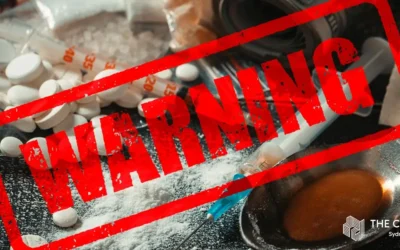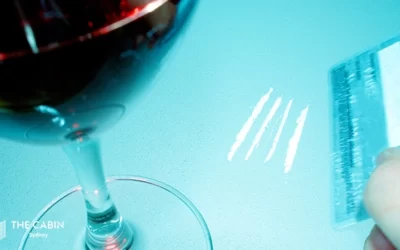As well-intended as you may be, playing your loved one’s game when they’re struggling with addiction only makes matters worse. It’s natural to be scared of what will happen when you stop enabling – so what should you do to support them?

Sharelines
It’s only natural to want to help. But sometimes that ‘help’ actually makes it easier for your loved one to maintain their addiction, worsening their situation – and yours.
We often want to do everything in our power to take care of our loved ones. Things like lending them money, making excuses for their behaviour to family and friends, calling in sick to work for them or paying their bills or rent so they don’t get evicted all stem from a desire to help.
But these acts can actually be detrimental to your addicted loved one, because it means that they never have to face the full consequences of their own actions. This allows their addiction to continue, and worsen.
Are You an Enabler?
If you’re wondering if your actions are enabling your loved one, ask yourself the following questions:
- Have you ever called in sick for your loved one because they were too high or hung-over to go to work?
- Have you ever made up excuses for their behaviour?
- Have you blamed yourself for their self-destructive ways?
- Do you avoid confronting them because you fear their response?
- Do you give them money or pay their bills?
- Have you repeatedly threatened to cut them off, but never followed through?
If you answered yes to any of these questions, then you’ve enabled your loved one to continue using at least once. While your actions came from a place of love, if you really want to help your loved one, you must learn to draw boundaries and get them the help they reall need for their addiction.
How to Stop Enabling and Start Empowering
1. Learn about addiction.
Understanding the disease model of addiction is absolutely crucial. The Cabin has many free, online resources to help you understand how addiction works and what you can do to address it. Our treatment programmes include addiction education for both addicts and their families.
2. Admit to the reality of the situation.
It’s not unusual to turn a blind eye when you first start seeing signs of your loved one’s addiction, but when you do so, you’re allowing the situation to grow worse. Most addicts not only lie to loved ones about the severity of their addiction – they lie to themselves as well. If you don’t confront them about what you know is going on, they may think they’ve gotten away with it and delve deeper into their maladaptive behaviour.
3. Overcome your fear.
There’s no way around it – you must stop fearing what will happen to your loved one, and what will become of your relationship, if you confront them. In order for your loved one to realise they need treatment, they need to take responsibility for the consequences of their addiction. These can include damaged relationships among other things such as the loss of their job, health or home. Just remember that while no amount of enabling has ever helped an addict get sober, drawing boundaries and facing harsh realities has.
4. Know that you can’t ‘fix’ them.
Ultimately, only an addict has the ability to help his or herself, so don’t beating yourself up over this. Also know that this addiction and all of its consequences are not your fault. Your loved one has a mind of their own. But although you can’t ‘fix’ it, you can help guide them towards professional help. In some cases, this may require performing an intervention.
5. Set rules and boundaries (and stick to them).
Consequences are the key to getting your loved one to realise the severity of their problem and get help. Let them know what you plan to do if they come home intoxicated again (i.e. kick them out) and stand by your word. Empty threats only send the message that you’re not serious.
When it comes to an addicted spouse, especially when kids are involved, the situation can get complicated. Seek guidance from a professional if you’re not sure how to navigate this.
6. Practice self-care.
People who love addicts often put themselves second. There’s a reason they tell you on airplanes to put your own oxygen mask on first – because if you’re not doing well yourself, you won’t have what it takes to look after others. Dealing with an addicted loved one is draining, so prioritise your self-care – eat well, get plenty of sleep and stay active. Seek addiction counselling (yes, it’s available for loved ones, too) or family therapy if you’re having a hard time coping.
7. Remember that ‘tough love’ doesn’t mean ‘no love’.
Tough love can seem unbearable when you put it into practice. But remember: although it feels difficult in the moment, you’re doing what’s best for your loved one. You’re guiding them towards making a life change that will ultimately serve them far better than their current behavioural patterns.
Get Your Addicted Loved One the Help They Need
If you’re reading this, you’re obviously concerned over the well-being of a loved one who’s showing signs of addiction.
Thankfully, you’re in the right place.
The Cabin Sydney has helped thousands break free from addiction, and we can help your loved one, too. Our family programme allows you to be involved in your loved one’s treatment, which significantly increases their chances of a long-term successful recovery from addiction.
Don’t wait any longer.
The sooner your loved one gets help for their addiction, the better their chances are of recovery. Contact us today for a consultation to see how we can help your loved one get their life back on track today.




